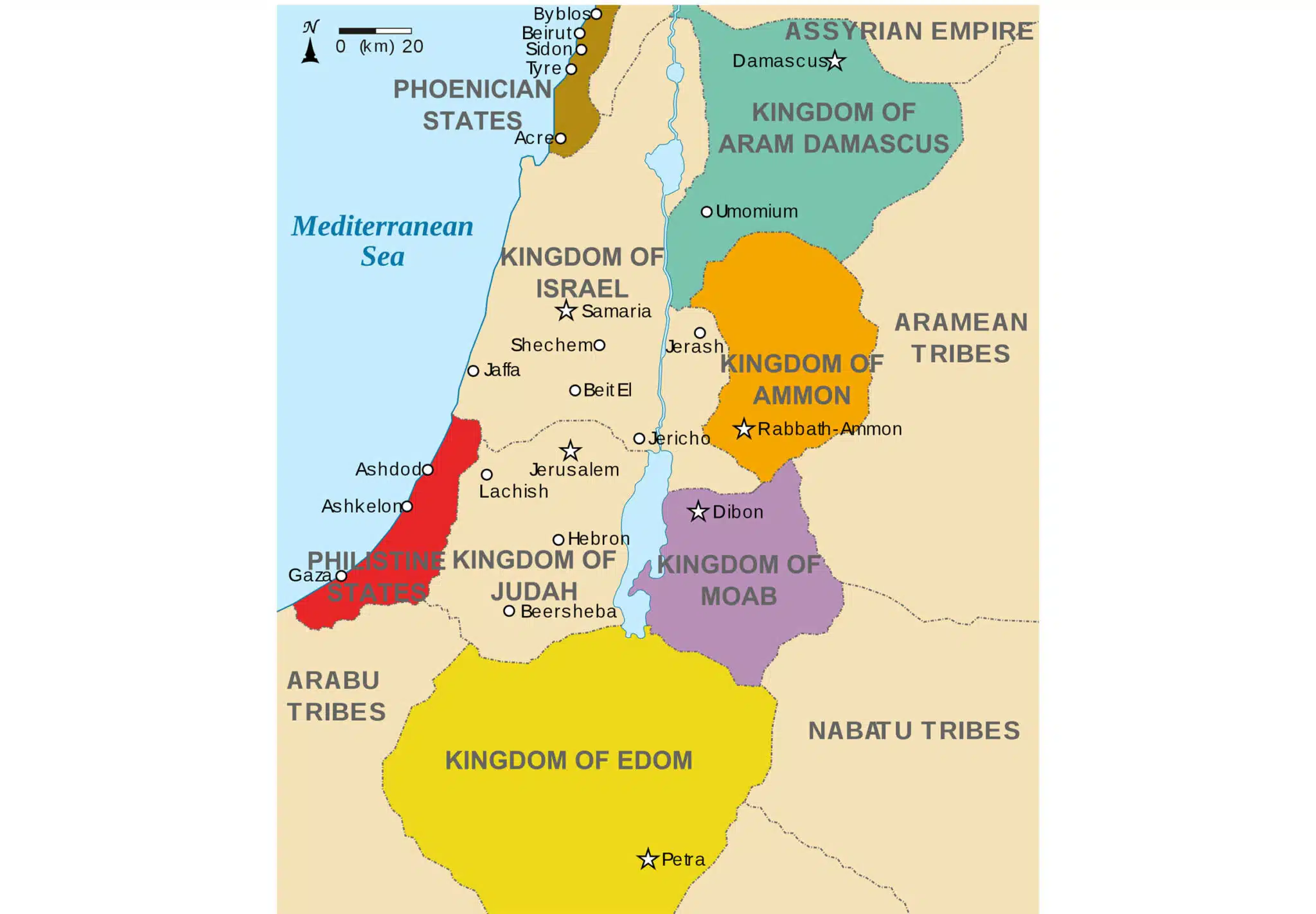The LORD pronounces judgment on the inhabitants of Ammon because they ripped open pregnant women in Gilead to enlarge their territory.
In this section, God’s indictment fell on Ammon, a fertile area northeast of Moab, east of the Jordan River, between the Arnon and Jabbok rivers and extending eastward to the Syrian desert. This territory is located in the modern country of Jordan, whose capital Aman bears the memory of its heritage as being part of Ammon. The LORD said, For three transgressions of the sons of Ammon and for four I will not revoke its punishment.
The sons of Ammon were kinsmen to the Israelites because they traced their ancestry to the younger daughter of Lot (Genesis 19:38). Despite their familial ties with Israel, the Ammonites treated Israel brutally. Here, their grievous sin is that the Ammonites ripped open the pregnant women of Gilead (the Israelite land located east of the Jordan River, just north of Ammon). To rip up something is to destroy it by tearing it into pieces. While we do not know exactly when the Ammonites did that to the Israelite women, we do know that such murderous acts were a common feature used in the ancient world to decimate the enemy.
For example, in the book of 2 Kings, Elisha used the verb “to rip up” when he predicted that Hazael would wage war against the Israelites once he became king. As he spoke to Hazael, he wept and said, “I know the evil that you will do to the sons of Israel: their strongholds you will set on fire, and their young men you will kill with the sword, and their little ones you will dash in pieces, and their women with child you will rip up” (2 Kgs. 8:12). In a similar vein, King Menahem of Israel “struck Tiphsah and all who were in it and its borders from Tirzah, because they did not open to him; therefore he struck it and ripped up all its women who were with child” (2 Kgs. 15:16).
Here in Amos, the Ammonites willfully ripped open the pregnant women of Gilead in order to enlarge their borders.The description sounds like they slashed the stomachs of the pregnant women so that the mothers would have to see their unborn children die before they died themselves. This would indicate a particularly brutal and sadistic treatment of the women.
To make it even worse, the motive of the Ammonites was simply materialistic—they just wanted more land. But apparently, they decided to be mean and brutal while they were at it. This made the sins of the Ammonites even worse. Therefore, God said He would kindle a fire on the wall of Rabbah, which would consume her citadels. As in the previous sections (Am. 1:1–12), fire is used symbolically for God’s destructive judgment. God would do away with the wall of Rabbah, the capital city of Ammon. He would also destroy its fortresses amid war cries on the day of battle, and a storm on the day of tempest. That means there would be shouts on the day of battle, and the heavy fighting would rage like a storm.
As a result of this devastating judgment upon the sons of Ammon, their king would go into exile,he and his princes together. The Ammonites would be defeated and would be taken away from their land. Although the precise date of this incident is unknown, the Ammonites were defeated by the Assyrian King, Sennacherib in 701 BC, and later, by Nebuchadnezzar in 582 BC.
Biblical Text
13 Thus says the Lord,
“For three transgressions of the sons of Ammon and for four
I will not revoke its punishment,
Because they ripped open the pregnant women of Gilead
In order to enlarge their borders.
14 “So I will kindle a fire on the wall of Rabbah
And it will consume her citadels
Amid war cries on the day of battle,
And a storm on the day of tempest.
15 “Their king will go into exile,
He and his princes together,” says the Lord.
Check out our other commentaries:
-
Isaiah 37:14-20 meaning
After receiving a letter meant to induce fear in the hearts of its readers, Hezekiah takes the letter and his supplication to Yahweh at the...... -
Deuteronomy 21:22-23 meaning
Moses instructs the Israelites on how to handle the dead body of a person who has committed a capital offense and has been put to...... -
2 Thessalonians 3:16-18 meaning
Paul blesses his readers with words of goodwill from God, that the Thessalonians would experience His peace and favor always....... -
2 Thessalonians 2:13-17 meaning
The Thessalonians should remember God’s love for them, how He chose them to be saved from sin and death, and to become Christlike through obedience...... -
Hebrews 7:4-10 meaning
Melchizedek was greater than Abraham and greater than other priests because Abraham gave him a tenth of the spoils and because Abraham received a blessing......



